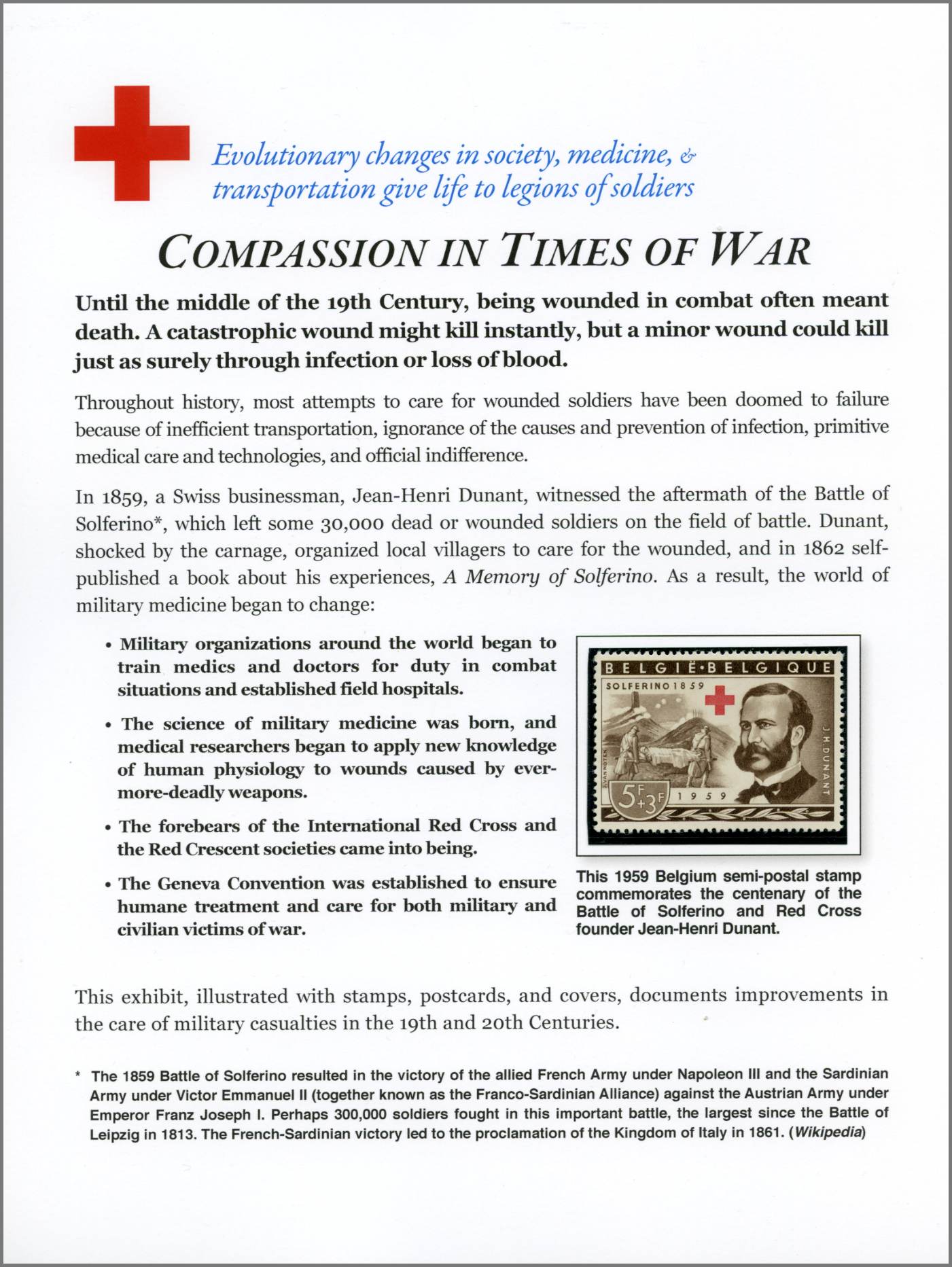Compassion in Times of War The evolution of military medicine (Page 1)
Page 9 | Page 10 | Page 11 | Page 12 | Page 13 | Page 14 | Page 15 | Page 16
The following exhibit of postcards, covers, stamps, and collateral ephemera won a gold medal At VANPEX 2013, the annual philatelic exhibition sponsored by my stamp club, the British Columbia Philatelic Society,1
My interest in military medicine dates from the time I began training as a U.S. Navy hospital corpsman in 1963. I went to boot camp at the navy’s Recruit Training Center in San Diego with my recruiter’s promise — not in writing! — that I could be a navy journalist. However, on the day that we recruits were assigned to additional training, the petty officer in charge of my destiny noted that my college transcript listed an ecology course I had taken in my freshman year:
“You studied ecology!” he said. “You’d make a good corpsman.”
“But,” I said, “my recruiter said I could be a navy journalist.”
“Nothin’ here about journalism. You’re going to be a corpsman.”

So, I became a corpsman. I reasoned that journalists need a wide range of experiences, and I did get a very wide range of experience, from assisting in the delivery room at the U.S. naval hospital in Yokosuka, Japan (and working in its sick bay — the navy equivalent of an ER), to giving first aid to wounded Marines in Vietnam, to having the memorable experience of nearly having my right leg blown off by a communist rifleman. My experiences as corpsman are detailed in the section of this web site titled “37 Days in Vietnam”.
After being wounded and evacuated to the U.S., it took me nearly a year to recover. Even that was a learning experience. When I became mobil (albeit with a plaster cast which extended from my right foot to my armpits and back down to my left knee), I started assisting the ward surgeon, Dr. Richter, and learned even more.
Today, I receive compensation from the U.S. Veterans Administration for 20% physical disability, with an additional 20% disability because of a diagnosis, in 2008, of combat-related Post-Traumatic Stress Syndrome.
Although I did become a journalist after my discharge from the navy2, I never lost my interest in medicine. In this Display Class3 exhibit, “Compassion in Times of War,” I provide an overview of military medicine as it evolved from the mid-1800s through the Vietnam War.

Page 9 | Page 10 | Page 11 | Page 12 | Page 13 | Page 14 | Page 15 | Page 16
-
VANPEX, the annual exhibition and bourse sponsored by the British Columbia Philatelic Society, stands for VANcouver Philatelic EXhibition. ↩︎
-
In 1969, I earned a Bachelor of Journalism degree, with honours, from the University of Missouri School of Journalism, and subsequently worked as a reporter, editor, and photographer for Canadian Press, the Canadian Wildlife Federation, and the Prince George, BC Citizen. ↩︎
-
The rules for Display Class philatelic exhibitions are among the most lenient of all classes; exhibitors are free to use almost any philatelic or collateral artifact in creating their exhibits. ↩︎